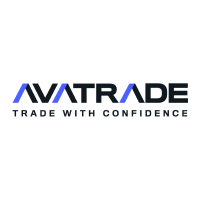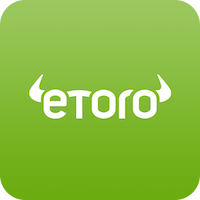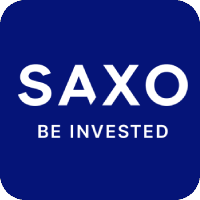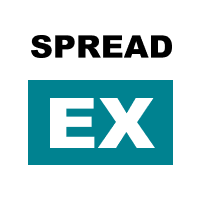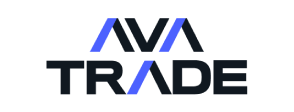Review our top 10 list of the most trustworthy and regulated forex brokers in the UAE. We tested with real money accounts and compared their key criteria.
Choosing a forex broker in the UAE can be challenging, as there are many options to consider. Finding a broker that is both safe and matches your investment goals requires careful research and consideration.
Evaluating brokers, comparing their features, and ensuring they are properly regulated are important steps to ensure you select a trustworthy and high-quality platform.
To make it simple to choose a forex broker, we selected a list of the top 10 brokers and what types of trading they are best for, followed by feature comparisons, reviews and frequently asked questions.
Best forex brokers in UAE
 3
3Pepperstone 4.8 Your capital is at risk.
Best for low-spread forex trading, fast execution, advanced tools.
 6
6Interactive Brokers 4.5 Your capital is at risk.
Best for professional traders, multi-asset offerings, institutional-grade tools.
 7
7Plus500 4.3 Your capital is at risk.
Best for simple forex trading with tight spreads and an easy-to-use trading platform.
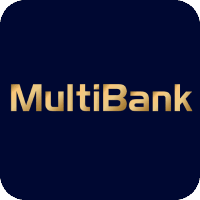 8
8Multibank 4.2 Your capital is at risk.
Best for advanced forex platforms, fast trade execution, and a wide range of trading tools.
Comprehensive forex brokers overview UAE
| Broker Name | ||
|---|---|---|
| AvaTrade | ||
| eToro | ||
| Pepperstone | ||
| ActivTrades | ||
| Saxo Bank | ||
| Interactive Brokers | ||
| Plus500 | ||
| MultiBank | ||
| Capital.com | ||
| Spreadex | ||
| IC Markets | ||
| FOREX.com | ||
| FP Markets | ||
| Global Prime | ||
| Vantage | ||
| IG | ||
| Swissquote | ||
| Tickmill | ||
| Admirals | ||
| Eightcap | ||
| Libertex | ||
| XM Group | ||
| BlackBull Markets | ||
| HYCM | ||
| CMC Markets | ||
| Fusion Markets | ||
| GO Markets | ||
| XTB | ||
| OANDA | ||
| VT Markets | ||
| HF Markets | ||
| easyMarkets | ||
| Trade Nation |
Safety and regulation overview in UAE
The UAE has a robust regulatory framework to ensure fairness, transparency, and investor protection in stock trading, creating a secure environment for investors. Key regulatory bodies include:
Securities and Commodities Authority (SCA): The SCA is the primary regulatory body for securities trading in the UAE. It oversees stock exchanges, brokers, and investment funds, ensuring compliance with local laws and protecting investors from fraud. The SCA mandates brokers to maintain high operational and reporting standards.
Dubai Financial Services Authority (DFSA): The DFSA regulates financial services in the Dubai International Financial Centre (DIFC). It ensures that brokers and financial institutions adhere to stringent standards for transparency, risk management, and investor protection.
Abu Dhabi Global Market (ADGM) Financial Services Regulatory Authority (FSRA): The FSRA governs financial activities within the ADGM, providing a robust framework for stock trading and investment services. It emphasizes market integrity and investor protection.
Central bank of the UAE: The Central Bank regulates banking and financial activities to maintain the overall stability of the UAE financial system. It also plays a role in ensuring that brokers operating in the UAE comply with capital adequacy and anti-money laundering regulations.
Investor protection mechanisms: While the UAE does not have an investor protection fund like the SIPC in the U.S., regulations under the SCA, DFSA, and FSRA ensure client funds are segregated from brokers’ operational funds, reducing the risk of mismanagement.
Tier-1 International Regulators
For UAE investors considering international brokers, working with entities regulated by Tier-1 regulators ensures additional security and transparency. Examples include:
- Securities and Exchange Commission (SEC) (USA): Sets rigorous standards for financial transparency and investor protection, making it a trusted regulator for brokers offering services globally.
- Financial Conduct Authority (FCA) (UK): Enforces stringent rules for client fund segregation, market practices, and operational integrity.
- Australian Securities and Investments Commission (ASIC): Ensures high standards of operational transparency and investor safeguards for brokers.
- Cyprus Securities and Exchange Commission (CySEC): Commonly regulates international brokers serving UAE clients, with protections like the Investor Compensation Fund.
Safety and regulation comparison for top brokers
Here are some key areas that determine how trustworthy a broker is: who they’re top tier regulators are, investor protection they provide, and if they have any history of misconduct, or scandals. Take a look at the table below where we break down this information for you.
| Broker Name | ||
|---|---|---|
| AvaTrade | ||
| eToro | ||
| Pepperstone | ||
| ActivTrades | ||
| Saxo Bank | ||
| Interactive Brokers | ||
| Plus500 | ||
| MultiBank | ||
| Capital.com | ||
| Spreadex |
Fees compared
Fees of selected platforms are compared in the table below. Pepperstone has the tightest spreads overall for major currency pairs.
| Broker Name | ||
|---|---|---|
| AvaTrade | ||
| eToro | ||
| Pepperstone | ||
| ActivTrades | ||
| Saxo Bank | ||
| Interactive Brokers | ||
| Plus500 | ||
| MultiBank | ||
| Capital.com | ||
| Spreadex |
Non-trading fees compared
Non-trading fees such as account, deposit and withdrawal fees are compared in the table below. AvaTrade has no deposit or withdrawal fees. Interactive brokers has no non trading fees across the board.
| Broker Name | ||
|---|---|---|
| AvaTrade | ||
| eToro | ||
| Pepperstone | ||
| ActivTrades | ||
| Saxo Bank | ||
| Interactive Brokers | ||
| Plus500 | ||
| MultiBank | ||
| Capital.com | ||
| Spreadex |
Minimum deposit, deposit methods and account opening compared
Minimum deposit, deposit method, how fast it takes to open an account, and other useful information of selected platforms are compared in the table below. AvaTrade doesn’t have any commission fees like many of the brokers on our list. Multibank has the most options available for depositing funds.
| Broker Name | ||
|---|---|---|
| AvaTrade | ||
| eToro | ||
| Pepperstone | ||
| ActivTrades | ||
| Saxo Bank | ||
| Interactive Brokers | ||
| Plus500 | ||
| MultiBank | ||
| Capital.com | ||
| Spreadex |
Mobile, desktop and web trading platforms compared
Trading platforms are compared in the table below. Interactive Brokers had the most intuitive and comprehensive trading platform we tested, and nearly all brokers have access to demo accounts for new traders looking to get their foot in the door.
| Broker Name | ||
|---|---|---|
| AvaTrade | ||
| eToro | ||
| Pepperstone | ||
| ActivTrades | ||
| Saxo Bank | ||
| Interactive Brokers | ||
| Plus500 | ||
| MultiBank | ||
| Capital.com | ||
| Spreadex |
Product selection, markets and financial assets compared
Available financial products are compared in the table below. Saxo Bank had the most currency pairs available, Plus500 had the most base currencies.
| Broker Name | ||
|---|---|---|
| AvaTrade | ||
| eToro | ||
| Pepperstone | ||
| ActivTrades | ||
| Saxo Bank | ||
| Interactive Brokers | ||
| Plus500 | ||
| MultiBank | ||
| Capital.com | ||
| Spreadex |
User base of top online brokers in UAE compared
The number of clients per broker are compared in the table below. eToro holds the top spot for most users at 35 million.
| Broker Name | |
|---|---|
| AvaTrade | |
| eToro | |
| Pepperstone | |
| ActivTrades | |
| Saxo Bank | |
| Interactive Brokers | |
| Plus500 | |
| MultiBank | |
| Capital.com | |
| Spreadex |
Top online brokers in UAE reviewed
1. AvaTrade – Overall best forex broker, excellent for beginners, Sharia-compliant accounts, fast account setup
FX Commission per lot: n/a. Demo Account: Yes.
Key points:
- Specializes in Forex and CFD trading, offering access to over 50 currency pairs and other global markets.
- Regulated by the Abu Dhabi Global Market (ADGM) under the Financial Services Regulatory Authority (FSRA).
- Sharia-compliant Islamic accounts available with interest-free options for Muslim traders.
- Advanced trading platforms: MetaTrader 4 (MT4), MetaTrader 5 (MT5), and AvaTradeGO for mobile users.
- Offers Arabic-language customer support, tailored to UAE clients.
Pros:
- Competitive spreads and fees for forex trading, great for both beginners and professionals.
- Support for MetaTrader platforms, providing advanced trading tools and automation capabilities.
- Sharia-compliant accounts for Muslim traders.
- User-friendly AvaTradeGO mobile app with smooth and fast trade execution.
- Arabic-language support ensures better communication for UAE clients.
Cons:
- Limited access to individual stocks and ETFs.
- No AED support for deposits or withdrawals, which may lead to conversion fees.
- Higher fees on inactivity accounts after three months of non-use.
71% of retail CFD accounts lose money
2. eToro – Best for social and copy trading, competitive forex spreads, and user-friendly platform
Min Deposit: $100
EURUSD spread/fee 1.0
Currency Pairs 55
Islamic Account Yes
61% of retail investor accounts lose money when trading CFDs with this provider. You should consider whether you can afford to take the high risk of losing your money.
FX Commission per lot: n/a. Demo Account: Yes.
Key Points:
- Offers forex trading alongside a range of other assets, including stocks, ETFs, and cryptocurrencies.
- Regulated by the Abu Dhabi Global Market (ADGM) under the Financial Services Regulatory Authority (FSRA), ensuring compliance for UAE clients.
- Known for its social and copy trading features, allowing users to replicate strategies of successful forex traders.
- Sharia-compliant Islamic accounts available for Muslim traders.
- Intuitive trading platforms, including the eToro mobile app and web-based dashboard.
Pros:
- Social and copy trading tools are great for beginners looking to learn from experienced forex traders.
- Competitive spreads on major forex pairs, such as EUR/USD and GBP/USD.
- Sharia-compliant Islamic accounts for interest-free trading.
- User-friendly platform, accessible via mobile and desktop, with a focus on simplicity.
- Arabic-language customer support tailored to UAE clients.
Cons:
- Limited advanced tools for professional forex traders seeking highly technical features.
- No AED support for deposits and withdrawals, leading to currency conversion fees.
- Higher-than-average fees on non-trading activities, such as withdrawals and inactivity.
61% of retail investor accounts lose money when trading CFDs with this provider. You should consider whether you can afford to take the high risk of losing your money.
3. Pepperstone – Best for low-spread forex trading, fast execution, and advanced tools for experienced traders
FX Commission per lot: $3.5. Demo Account: Yes.
Key points:
- Specializes in forex and CFD trading, offering access to 60+ currency pairs and a variety of other financial instruments.
- Regulated by the Dubai Financial Services Authority (DFSA), ensuring compliance with UAE regulations.
- Supports advanced trading platforms: MetaTrader 4 (MT4), MetaTrader 5 (MT5), and cTrader.
- Provides Sharia-compliant Islamic accounts, tailored for Muslim traders.
- Focuses on low spreads and fast trade execution, making it ideal for scalping and high-frequency trading.
Pros:
- Competitive spreads starting from 0.0 pips on major forex pairs like EUR/USD.
- Advanced trading platforms with support for algorithmic trading and customizable tools.
- Sharia-compliant Islamic accounts available with interest-free options.
- Offers educational resources and market research to help traders stay informed.
- Responsive Arabic-language customer support for UAE clients.
Cons:
- Limited access to individual stocks and ETFs outside CFDs.
- No AED support for deposits or withdrawals, potentially incurring conversion fees.
- Primarily focused on forex and CFDs, with fewer options for multi-asset traders.
74-89% of retail CFD accounts lose money
4. ActivTrades – Best for CFD trading alongside forex, competitive fees, and excellent mobile app

Min Deposit: $0
EURUSD spread/fee 0.9
Currency Pairs 49
Islamic Account Yes
CFDs are complex instruments and come with a high risk of losing money rapidly due to leverage. 83% of retail investor accounts lose money when trading CFDs with this provider. You should consider whether you understand how CFDs work and whether you can afford to take the high risk of losing your money.
FX Commission per lot: n/a. Demo Account: Yes.
Key points:
- Focuses on forex and CFD trading, offering access to 50+ currency pairs and other instruments like indices and commodities.
- Not directly regulated in the UAE under DFSA or ADGM but operates globally under FCA (UK) and other trusted authorities.
- Provides Sharia-compliant Islamic accounts, catering to Muslim traders.
- Supports advanced trading platforms: MetaTrader 4 (MT4), MetaTrader 5 (MT5), and its proprietary ActivTrader platform.
- Offers competitive spreads and low trading fees for forex traders.
Pros:
- Tight spreads starting from 0.5 pips on major forex pairs.
- Advanced trading platforms with features like risk management tools and custom indicators.
- Sharia-compliant accounts for interest-free forex trading.
- Intuitive ActivTrader platform, tailored for both beginners and experienced traders.
- Comprehensive educational resources and market insights to support UAE clients.
Cons:
- No direct regulation by DFSA or ADGM, which might be a drawback for some UAE clients.
- No AED support for deposits or withdrawals, leading to potential conversion fees.
- Limited focus on asset classes outside of forex and CFDs.
CFDs are complex instruments and come with a high risk of losing money rapidly due to leverage. 83% of retail investor accounts lose money when trading CFDs with this provider. You should consider whether you understand how CFDs work and whether you can afford to take the high risk of losing your money.
5. Saxo Bank – Best for high-volume forex trading, advanced platforms, and access to diverse financial products
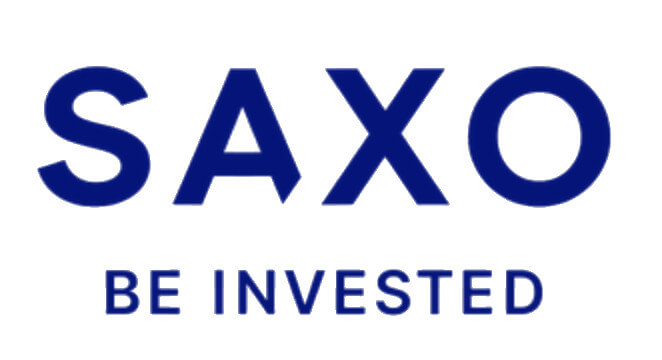
Min Deposit: $0
EURUSD spread/fee 0.9
Currency Pairs 190
Islamic Account No
69% of retail investor accounts lose money when trading CFDs with this provider.
FX Commission per lot: n/a. Demo Account: Yes.
Key points:
- Offers forex trading with access to 190+ currency pairs, including major, minor, and exotic currencies, alongside other instruments like stocks, bonds, ETFs, and options.
- Regulated by the Dubai Financial Services Authority (DFSA), ensuring compliance and transparency for UAE-based clients.
- Advanced trading platforms: SaxoTraderGO for everyday traders and SaxoTraderPRO for professionals.
- Tailored for high-volume trading with tools suitable for professional and institutional traders.
- Provides extensive educational resources and market research for informed trading decisions.
Pros:
- Access to a wide range of forex pairs, ideal for diversification and tailored strategies.
- Professional-grade trading platforms (SaxoTraderGO and SaxoTraderPRO) with advanced analytics, risk management, and custom trading tools.
- Multilingual customer support, including Arabic, for seamless communication with UAE traders.
- Comprehensive market research and insights, empowering traders with informed decision-making tools.
- Competitive pricing and spreads, especially for high-volume and institutional traders.
Cons:
- No Islamic (swap-free) accounts, which may deter observant Muslim traders.
- High minimum deposit requirements ($5,000 for standard accounts), making it less accessible for beginners.
- Complex fee structure, which could be challenging for less experienced forex traders to understand.
69% of retail investor accounts lose money when trading CFDs with this provider.
6. Interactive Brokers – Best for professional forex traders, excellent multi-asset offerings, and institutional-grade tools
FX Commission per lot: $2. Demo Account: Yes.
Key points:
- Offers forex trading with access to 105+ currency pairs alongside other asset classes like stocks, ETFs, options, futures, and bonds.
- Regulated in the UAE under a Category 4 license from the Dubai Financial Services Authority (DFSA) via Interactive Brokers (U.K.) Limited (DIFC Branch).
- Known for its professional-grade trading platforms, including Trader Workstation (TWS) and IBKR Mobile.
- No Sharia-compliant Islamic accounts available, which may be a drawback for Muslim traders.
- Focuses on institutional-grade trading tools and low spreads, catering to experienced traders.
Pros:
- Access to 105+ forex pairs, including major, minor, and exotic currencies.
- Low spreads and competitive fees for high-volume forex trading.
- Advanced trading tools on Trader Workstation (TWS), ideal for professional traders.
- Regulated by DFSA for local oversight and compliance in the UAE.
- Multi-currency accounts support 27 currencies, allowing portfolio diversification.
Cons:
- No Sharia-compliant Islamic account options.
- Platform complexity may overwhelm beginners.
- No AED support for deposits or withdrawals, resulting in currency conversion fees.
- Limited Arabic-language customer support; services primarily in English.
63.3% of retail investor accounts lose money when trading CFDs with IBKR.
7. Plus500 – Best for simple forex trading with tight spreads and an easy-to-use trading platform
FX Commission per lot: $2. Demo Account: Yes.
Key points:
- Specializes in forex and CFD trading, offering access to over 70 currency pairs and other instruments like commodities, indices, and cryptocurrencies.
- Not directly regulated in the UAE, but operates globally under FCA (UK), ASIC (Australia), and CySEC (Cyprus) regulations.
- Provides an intuitive proprietary trading platform, available on desktop and mobile, suitable for beginners.
- No Sharia-compliant Islamic accounts available, which may not meet the needs of Muslim traders.
- Focuses on low spreads and user-friendly trading tools, ideal for new and casual forex traders.
Pros:
- Tight spreads on major forex pairs, with no commission-based trading.
- Simple and user-friendly trading platform designed for ease of use.
- No minimum deposit requirement for UAE clients, making it accessible to all traders.
- Offers negative balance protection, safeguarding traders from losing more than their deposits.
- Real-time market alerts and risk management tools built into the platform.
Cons:
- Not directly regulated in the UAE by DFSA or ADGM.
- No Sharia-compliant Islamic account options.
- Limited access to advanced tools for professional traders.
- No AED support for deposits or withdrawals, leading to conversion fees.
CFD Service. Regulated by the DFSA. Trading carries risk.
8. Multibank – Best for advanced forex platforms, fast trade execution, and a wide range of trading tools
FX Commission per lot: $3. Demo Account: Yes.
Key points:
- Specializes in forex and CFD trading, offering access to over 40+ currency pairs alongside other instruments like commodities, indices, and metals.
- Regulated by the Dubai Financial Services Authority (DFSA) and several other global authorities, ensuring a secure trading environment for UAE clients.
- Offers Sharia-compliant Islamic accounts with interest-free options tailored for Muslim traders.
- Provides advanced trading platforms: MetaTrader 4 (MT4) and MetaTrader 5 (MT5).
- Focuses on tight spreads and high leverage options, catering to both beginners and professional traders.
Pros:
- Sharia-compliant Islamic accounts available, ideal for Muslim traders.
- Competitive spreads starting from 0.0 pips on major forex pairs.
- High leverage options (up to 500:1) for forex trading.
- Supports MT4 and MT5, offering advanced tools and customizable features for all trader levels.
- Arabic-language customer support, tailored for UAE clients.
Cons:
- High leverage can increase risks for inexperienced traders.
- Limited access to stocks and ETFs outside CFD offerings.
- No AED support for deposits or withdrawals, potentially incurring conversion fees.
74-89% of retail CFD accounts lose money
9. Capital.com – Best for AI-powered trading tools, forex education, and fast account opening

Min Deposit: $20 (or currency equivalent) / $10 for bank cards & Apple Pay
EURUSD spread/fee 0.6
Currency Pairs 125
Islamic Account No
CFD trading carries risk. Capital.com is regulated by the Securities and Commodities Authority.
FX Commission per lot: n/a. Demo Account: Yes.
Key points:
- Offers forex trading alongside CFDs on stocks, indices, commodities, and cryptocurrencies, with access to over 130 currency pairs.
- Not directly regulated in the UAE, but operates globally under FCA (UK), ASIC (Australia), CySEC (Cyprus), and NBRB (Belarus).
- Provides a proprietary AI-powered trading platform with user-friendly features and advanced risk management tools.
- No Sharia-compliant Islamic accounts, which may limit its appeal for Muslim traders.
- Focuses on low spreads, zero commissions, and an intuitive trading experience for both beginners and intermediate traders.
Pros:
- Tight spreads starting from 0.6 pips on major forex pairs.
- AI-driven tools for personalized trading insights and risk management.
- No commission on trades and no hidden fees.
- Accessible platform with advanced features for analysis and trading education.
- Fast account setup with a low minimum deposit requirement.
Cons:
- Not directly regulated by UAE authorities (e.g., DFSA or ADGM).
- No Sharia-compliant Islamic account options.
- Limited support for advanced tools needed by professional forex traders.
- No AED support for deposits or withdrawals, leading to conversion fees.
CFD trading carries risk. Capital.com is regulated by the Securities and Commodities Authority.
10. Spreadex – Best for spread betting on forex, flexible leverage, and competitive fees

Min Deposit: $0
EURUSD spread/fee 0.6
Currency Pairs 60
Islamic Account No
Spread bets and CFDs are complex instruments and come with a high risk of losing money rapidly due to leverage. 65% of retail investors lose money when trading spread bets and CFDs with this provider. You should consider whether you understand how spread bets and CFDs work and whether you can afford to take the high risk of losing your money.
FX Commission per lot: n/a. Demo Account: No.
Key points:
- Specializes in forex trading and spread betting, offering access to a variety of currency pairs, indices, and commodities.
- Not directly regulated in the UAE, but operates under FCA (UK) regulation, ensuring a high standard of security and transparency.
- Provides a proprietary trading platform for spread betting and CFDs, with user-friendly features.
- No Sharia-compliant Islamic accounts, which may limit appeal for Muslim traders.
- Focuses on low-cost trading with tight spreads and flexible leverage options, ideal for casual traders.
Pros:
- Spread betting available for forex, offering tax advantages for some international clients.
- Tight spreads on forex pairs, starting from 0.6 pips.
- Intuitive proprietary platform with real-time price alerts and charting tools.
- Negative balance protection to safeguard traders.
- No minimum deposit requirement, making it accessible to new traders.
Cons:
- Not directly regulated by UAE authorities such as DFSA or ADGM.
- No Sharia-compliant Islamic accounts, which might deter Muslim traders.
- Focused on spread betting and CFDs; lacks diversity in asset offerings like stocks or ETFs.
- No AED support for deposits or withdrawals, leading to potential currency conversion fees.
Spread bets and CFDs are complex instruments and come with a high risk of losing money rapidly due to leverage. 65% of retail investors lose money when trading spread bets and CFDs with this provider. You should consider whether you understand how spread bets and CFDs work and whether you can afford to take the high risk of losing your money.
How to find the best forex broker in the UAE
Selecting the right broker is essential for both beginner and experienced traders in the UAE. Here’s how we evaluate the best options for you:
- Safety (Regulation): We prioritize brokers regulated by trusted authorities such as the Securities and Commodities Authority (SCA), Abu Dhabi Global Market (ADGM), and Dubai Financial Services Authority (DFSA). Compliance with these local regulators ensures a secure, transparent, and compliant trading environment for UAE clients. Brokers regulated by Tier-1 international authorities like the FCA (UK) or ASIC (Australia) also provide an additional layer of security and credibility for global forex trading.
- Fees: For forex trading, we focus on brokers offering tight spreads and low commissions. Brokers with transparent pricing structures and no hidden fees are prioritized. Platforms with low or no currency conversion costs and minimal withdrawal fees are especially important for UAE traders dealing with multi-currency accounts.
Key fee considerations:
- Spreads: Tight spreads on major forex pairs (e.g., EUR/USD) are critical for reducing trading costs.
- Commissions: Brokers offering commission-free trading or low-per-trade commissions are preferred.
- Swap Fees: For non-Islamic accounts, competitive or waived swap rates for overnight positions are ideal.
- Currency Conversion Costs: Brokers supporting AED or offering low conversion fees are highly rated.
- Non-trading fees: We assess brokers for hidden costs such as account maintenance fees, inactivity charges, and high withdrawal costs. Platforms with minimal or no non-trading fees are given preference. For forex traders, brokers with favorable rollover or swap-free options are considered advantageous for cost-efficiency.
- Deposit/withdrawal, account opening: We value brokers that offer a streamlined and efficient account opening process tailored for UAE clients. Platforms supporting local payment methods, including UAE bank transfers, credit cards, and e-wallets, stand out. Brokers with fast deposit and withdrawal processing times and no additional fees ensure smooth financial transactions for forex traders.
- Mobile app/trading platforms: Forex traders rely heavily on advanced tools, so we evaluate brokers based on the quality and functionality of their platforms. The best platforms feature:
- Real-time market alerts for price changes in forex pairs.
- Advanced charting tools for technical analysis.
- Efficient trade execution for high-frequency traders.
- Algorithmic trading and compatibility with popular platforms like MetaTrader 4 (MT4), MetaTrader 5 (MT5), and cTrader.
Taxation for forex trading in the UAE
Understanding tax implications is essential for forex traders in the UAE. Here’s how taxation applies to forex trading:
No personal income tax: The UAE does not impose personal income tax on residents. This means profits earned from forex trading, whether short-term or long-term, are not subject to taxation, making it a tax-efficient jurisdiction for individual traders.
No capital gains tax: Forex trading profits are not categorized under capital gains tax in the UAE. This provides traders with a significant advantage compared to regions where capital gains taxes are applicable.
Corporate tax implications: Starting in 2023, businesses generating more than AED 375,000 in annual profits are subject to corporate tax in the UAE. If forex trading is conducted as part of a business operation (e.g., proprietary trading firms or managed accounts), profits may fall under this tax regime. Consulting a tax advisor is recommended to ensure compliance.
Currency conversion considerations: While there are no direct taxes on currency conversions in the UAE, exchange rate fluctuations when trading forex pairs involving AED or international currencies can impact profitability. Traders should account for potential costs from spreads or conversion fees.
International tax obligations: Forex traders dealing with brokers based in other jurisdictions or trading exotic currency pairs tied to specific countries should be aware of international tax implications. Some countries may impose withholding taxes or other charges. UAE residents should consult a tax advisor to understand any cross-border obligations and potential benefits from double taxation treaties.
Favorable tax environment: The UAE’s tax-free structure for individual traders and lack of direct levies on forex trading make it an attractive location for retail and professional forex traders. However, businesses engaging in forex trading should seek professional tax advice to align with corporate tax regulations.
How to Invest in global markets from the UAE
Follow these simple steps to start investing and trading in the UAE:
- Choose a broker: Pick a broker regulated by SCA, ADGM, or DFSA in the UAE, or a trusted global broker offering access to forex, ETFs, indices, and global markets.
- Check local requirements: For UAE-listed assets (DFM, ADX, NASDAQ Dubai), you might need an Investor Number (NIN).
- Open an account: Submit your Emirates ID, passport, proof of address, and bank details. Many brokers offer quick online registration.
- Fund your account: Use UAE bank transfers, credit cards, or e-wallets. Choose brokers that accept AED to avoid extra fees.
- Understand the market: Learn about forex, ETFs, indices, and global markets. Research trends and economic news to make informed decisions.
- Set goals: Decide your investment goals (e.g., growth, income) and choose a strategy that matches your risk level.
- Start trading: Use your broker’s platform or mobile app to trade in forex, ETFs, indices, or UAE-listed assets.
- Manage risks: Diversify your portfolio and use tools like stop-loss orders to limit potential losses.
- Track your investments: Regularly check your portfolio, adjust your strategy, and stay updated with market changes.
- Withdraw or reinvest: Choose to withdraw profits or reinvest them to grow your portfolio long-term.
Which types of trading are legal in the UAE
In the UAE, trading is regulated by authorities like the Securities and Commodities Authority (SCA), the Abu Dhabi Global Market (ADGM), and the Dubai Financial Services Authority (DFSA). These regulatory bodies ensure fairness, transparency, and investor protection. Here are the types of trading allowed in the UAE:
- Stock trading: Buying and selling shares of companies listed on UAE exchanges like the Dubai Financial Market (DFM) and the Abu Dhabi Securities Exchange (ADX), as well as international markets through approved brokers.
- Forex trading: Trading currency pairs is legal through brokers regulated by the SCA, ADGM, DFSA, or international regulators authorized to operate in the UAE.
- Derivatives trading: Trading in futures and options on regulated platforms, including commodities and financial instruments, is permitted under UAE law.
- Commodity trading: Trading physical commodities like gold, silver, and oil is legal, often conducted on platforms like the Dubai Gold and Commodities Exchange (DGCX).
- Mutual funds and bonds: Investing in mutual funds, government bonds, and corporate bonds is available through licensed brokers and financial institutions.
- Cryptocurrency trading: While not fully regulated, cryptocurrency trading is allowed under certain conditions through platforms approved by the UAE’s regulators.
It is essential to use brokers or platforms regulated by UAE authorities or internationally recognized bodies authorized to operate locally. This ensures secure, transparent, and compliant trading.
Conclusion
After analyzing and comparing the top brokers for UAE clients, we have chosen AvaTrade as the best forex broker for 2025.
AvaTrade excels in forex trading by offering access to global markets, competitive spreads, and advanced trading platforms such as MetaTrader 4 (MT4) and MetaTrader 5 (MT5). Regulated by the Abu Dhabi Global Market (ADGM) and other top-tier international authorities, it ensures a secure and transparent environment for UAE traders.
With its Sharia-compliant Islamic account options, user-friendly interface, and fast account setup, AvaTrade is an excellent choice for both beginners and experienced forex traders. Its robust features and strong regulatory oversight solidify its position as the top forex broker for UAE clients in 2025.
 3
3Pepperstone 4.8 Your capital is at risk.
Best for low-spread forex trading, fast execution, advanced tools.
 6
6Interactive Brokers 4.5 Your capital is at risk.
Best for professional traders, multi-asset offerings, institutional-grade tools.
 7
7Plus500 4.3 Your capital is at risk.
Best for simple forex trading with tight spreads and an easy-to-use trading platform.
 8
8Multibank 4.2 Your capital is at risk.
Best for advanced forex platforms, fast trade execution, and a wide range of trading tools.
FAQ
What is an online broker?
In the UAE, an online broker is a financial service provider that allows you to buy and sell financial instruments such as stocks, ETFs, mutual funds, bonds, forex, and derivatives through an online platform or app. These brokers provide access to both local exchanges, such as the Dubai Financial Market (DFM) and Abu Dhabi Securities Exchange (ADX), and international markets, offering tools to monitor portfolios, analyze markets, and execute trades conveniently.
What is a stockbroker?
A stockbroker is a person or company that enables investors to buy and sell stocks or other investment assets. There are three main types of stockbrokers: full-service, discount, and online. A full-service stockbroker manages your money and investments on your behalf and may also offer financial advice.
A discount stockbroker allows you to choose your own investments but buys or sells them for you, and some also offer general information and recommendations to help you decide which assets to buy. An online stockbroker lets you buy and sell investment assets yourself through an online platform or a mobile app. Each type of stockbroker charges fees to cover the cost of running your investment account, buying and selling stocks, and/or trading in a foreign currency.
An online brokerage or investment platform is a website or app that allows you to buy, hold, and sell assets such as stocks, shares, and investment funds. Most providers offer access to companies across a range of industries and markets, including the US, UK, and Europe.
What is forex trading, and how does it work?
Forex trading, also known as foreign exchange trading, involves buying and selling currency pairs to profit from changes in exchange rates. Traders speculate on whether a currency will strengthen (appreciate) or weaken (depreciate) relative to another. For example, in the EUR/USD pair, you can trade based on whether the euro will gain or lose value against the US dollar. Forex trading occurs in a decentralized market, operating 24 hours a day, five days a week.
What are the main forex trading strategies?
Forex traders commonly use the following strategies:
- Scalping: Short-term trades focusing on small price movements within minutes.
- Day Trading: Opening and closing positions within a single trading day.
- Swing Trading: Holding trades for several days to capture broader market movements.
- Position Trading: Long-term trading based on macroeconomic trends.
Each strategy suits different risk tolerances, time commitments, and skill levels.
What should I consider when choosing a forex broker in the UAE?
When selecting a forex broker, consider:
- Regulation: Ensure the broker is licensed by DFSA, ADGM, or a Tier-1 regulator like FCA or ASIC.
- Spreads: Look for brokers offering tight spreads on major currency pairs (e.g., EUR/USD).
- Leverage: Choose brokers offering suitable leverage levels for your experience.
- Islamic Accounts: Ensure the broker offers Sharia-compliant accounts if needed.
- Platform Quality: Check for advanced charting tools, real-time data, and mobile app support.
Are UAE brokers safe?
Brokers regulated by the SCA, ADGM, or DFSA are considered safe, as they adhere to stringent operational and financial standards. International brokers regulated by Tier-1 authorities like FCA or ASIC and authorized to operate in the UAE also provide secure trading environments.
What fees should I expect when trading in the UAE?
Expect brokerage fees, account maintenance charges, currency conversion fees for international markets, and occasional withdrawal fees. Brokers with locally tailored pricing are preferable to minimize costs.
What documents do I need to trade in the UAE?
- Emirates ID or valid passport
- Proof of residence (utility bill or rental agreement)
- Bank account details
- National Investor Number (NIN) for DFM and ADX trading
Can UAE clients trade internationally?
Yes, UAE clients can trade global markets through locally regulated brokers or internationally licensed platforms authorized to operate in the UAE. Ensure the broker provides access to your desired markets and complies with local regulations.
How do I manage risks when trading from the UAE?
Use tools like stop-loss orders, diversify across sectors and markets, and stay informed about market conditions. Select brokers offering features like risk alerts and negative balance protection to safeguard your investments.
What is negative balance protection?
Negative balance protection prevents traders from losing more money than they have deposited. This is especially important for leveraged trading to protect against volatile market movements.
What are ETFs, and why invest in them?
ETFs allow you to invest in a basket of assets like stocks or commodities and trade them like stocks. They offer diversification, low costs, and ease of trading, making them attractive to UAE investors looking to access both local and international markets.
How can I ensure my online trading is secure?
Use strong passwords, enable two-factor authentication, and trade through regulated brokers with encrypted platforms. Regularly monitor your account for unauthorized activity.
What is day trading, and is it suitable for me?
Day trading involves buying and selling securities within the same trading day. It requires time, quick decision-making, and a tolerance for high risk, making it better suited for experienced traders.
What is a brokerage account, and why do I need one in the UAE?
A brokerage account allows you to trade and invest in financial instruments such as stocks, ETFs, and forex. It is essential for accessing local exchanges like DFM and ADX or international markets.
Are brokerage charges negotiable in the UAE?
Some brokers may offer negotiable fees, especially for high-volume traders or business accounts. Inquire with your broker for potential discounts or tiered pricing options.
What is margin trading, and is it available in the UAE?
Margin trading lets you borrow funds to buy more securities than you could with your available capital, amplifying potential returns and risks. It is available in the UAE through brokers authorized for leveraged trading. Ensure you understand the risks before using this feature.
Do brokers in the UAE offer sharia-compliant trading?
Many brokers in the UAE provide sharia-compliant (Islamic) accounts with no interest charges, suitable for observant Muslim traders.
Which local stocks can I trade in the UAE?
UAE traders can access stocks listed on the Dubai Financial Market (DFM), Abu Dhabi Securities Exchange (ADX), and NASDAQ Dubai.
What is the National Investor Number (NIN), and why is it important?
A National Investor Number is required for trading on DFM and ADX, and you can obtain it by registering with these exchanges. More information are available in this guide on how to buy stocks in UAE.
Do UAE residents pay taxes on stock trading?
No, UAE residents are not subject to personal income tax on trading profits. However, be aware of potential taxes when trading international stocks.
What are the most common assets traded in the UAE?
Stocks, ETFs, forex, commodities (like gold), mutual funds, and derivatives (futures and options) are commonly traded by UAE investors.
Can I trade cryptocurrencies in the UAE?
Yes, but only through authorized platforms such as eToro or brokers regulated by UAE authorities offering crypto assets.
What trading hours should I be aware of?
UAE stock markets operate Sunday to Thursday, with DFM and ADX trading hours typically from 10:00 AM to 3:00 PM UAE time.
What are the biggest stock exchanges in the UAE?
The biggest stock exchanges in UAE are listed below.
- The Dubai Financial Market, or DFM for short
- The Abu Dhabi Securities Exchange, or ADX for short
- The NASDAQ Dubai
What are the different stock brokerage accounts available in the UAE?
There 3 different stock brokerage accounts available in the UAE are listed below.
- Local stock brokers: is only available for people living in the UAE (both natives and expats). The Ras Al Khaimah Investment Authority (a UAE government agency) can be used instead.
- A UAE bank brokerage accounts: UAE bank accounts are available to both foreigners and nationals living in the UAE and allow users access to self directed trading and professional managed investing
- Online stock brokers: allows self directed trading, access to international markets and total control of investment through the same dashboard.
Can I invest in the UAE stock market as a tourist or expat?
Everyone can invest in the UAE stock market with a valid NIN number.
What is leverage in forex trading, and how does it work?
Leverage allows traders to control a larger position with a smaller deposit. For example, a leverage ratio of 100:1 means you can control $10,000 with only $100. While leverage can amplify profits, it also increases the risk of losses, making proper risk management essential.
What is a pip, and why is it important in forex trading?
A pip (percentage in point) is the smallest price movement in a currency pair. For most forex pairs, one pip equals 0.0001. Pips measure price changes and help calculate profits or losses in forex trading. For example, if EUR/USD moves from 1.1200 to 1.1205, it has increased by 5 pips.
Are there specific forex trading hours I should know about in the UAE?
Yes, forex trading operates 24 hours a day, divided into sessions:
- Asian Session: 3:00 AM – 12:00 PM UAE time.
- European Session: 11:00 AM – 8:00 PM UAE time.
- US Session: 4:00 PM – 1:00 AM UAE time.
Forex is most active during session overlaps, such as the European and US sessions, offering higher volatility and trading opportunities.
What is slippage in forex trading, and how can I avoid it?
Slippage occurs when an order is executed at a price different from the one requested due to market volatility or liquidity issues.
To minimize slippage:
- Trade during high-liquidity sessions.
- Use limit orders instead of market orders.
- Choose brokers with fast execution speeds and reliable platforms.
What are swap fees, and how do they affect forex trading?
Swap fees, or rollover fees, are charged when you hold a forex position overnight. They represent the interest rate difference between the two currencies in a pair.
For observant Muslim traders, brokers offering Islamic accounts provide interest-free trading to comply with Sharia law.
What is the difference between major, minor, and exotic currency pairs?
- Major Pairs: Include USD and a major currency (e.g., EUR/USD, GBP/USD). These pairs have high liquidity and low spreads.
- Minor Pairs: Do not include USD but consist of major currencies (e.g., EUR/GBP, AUD/JPY).
- Exotic Pairs: Include a major currency and an emerging-market currency (e.g., USD/TRY). Exotic pairs have higher spreads and lower liquidity.
What is a forex lot, and how does it impact trading?
A forex lot represents the standardized unit size for a trade.
- Standard Lot: 100,000 units of the base currency.
- Mini Lot: 10,000 units.
- Micro Lot: 1,000 units.
Lot size affects your exposure to the market and determines the value of each pip movement.
Everything you find on Business24-7 is based on trustworthy data and impartial analysis. We combine over 11 years of financial expertise with valuable reader feedback to provide accurate insights. Learn more about our methodology.
Disclaimer
eToro is a multi-asset platform which offers both investing in stocks and cryptoassets, as well as trading CFDs.
Please note that CFDs are complex instruments and come with a high risk of losing money rapidly due to leverage. 61% of retail investor accounts lose money when trading CFDs with this provider. You should consider whether you understand how CFDs work, and whether you can afford to take the high risk of losing your money
This communication is intended for information and educational purposes only and should not be considered investment advice or investment recommendation. Past performance is not an indication of future results.
Copy Trading does not amount to investment advice. The value of your investments may go up or down. Your capital is at risk.
Crypto assets are complex and carry a high risk of volatility and loss. Trading or investing in crypto assets may not be suitable for all investors. Take 2 mins to learn more
eToro USA LLC does not offer CFDs and makes no representation and assumes no liability as to the accuracy or completeness of the content of this publication, which has been prepared by our partner utilizing publicly available non-entity specific information about eToro.



